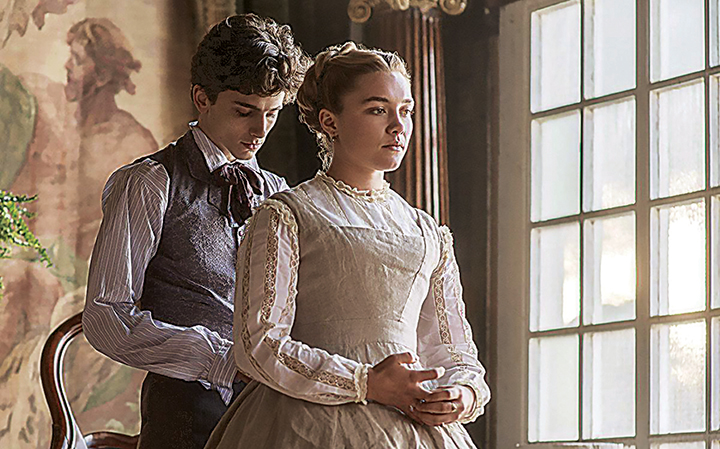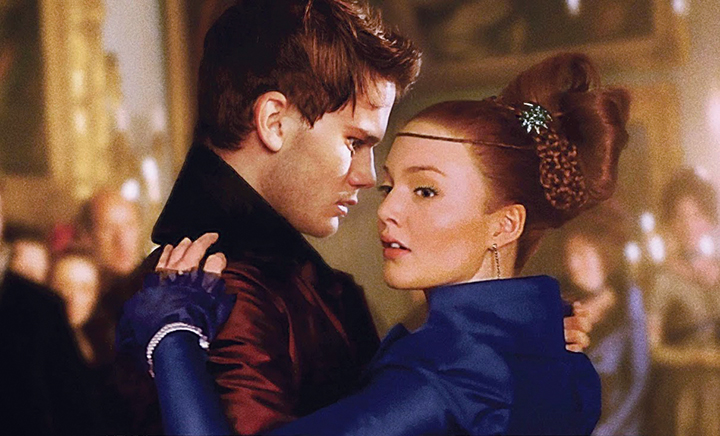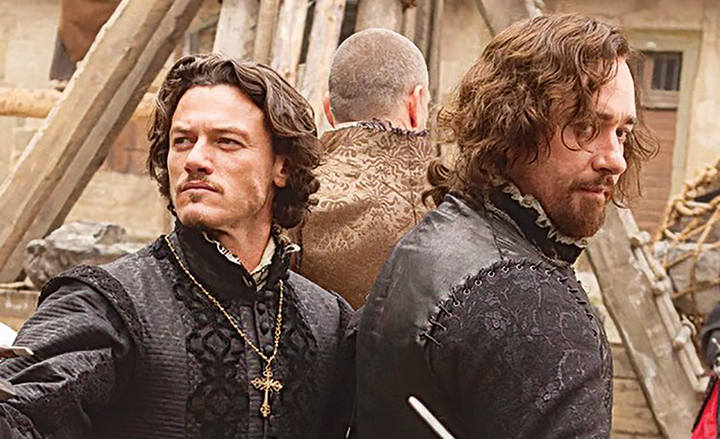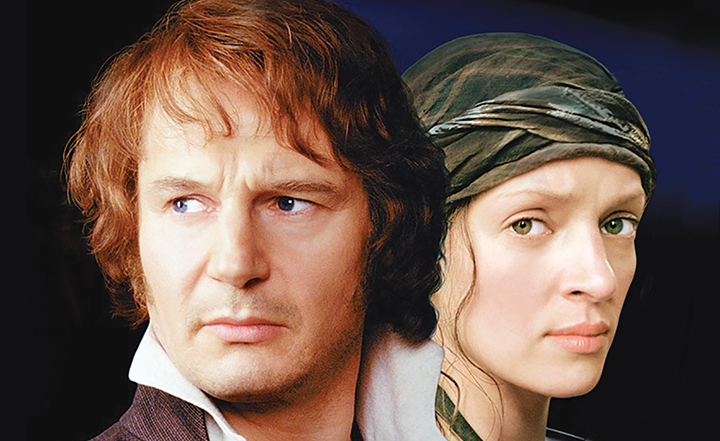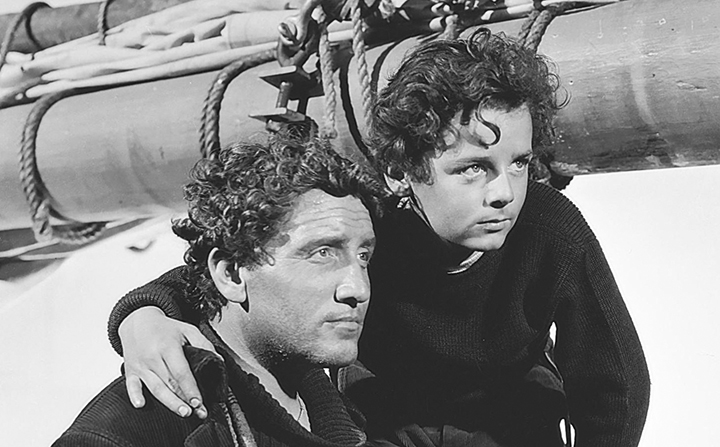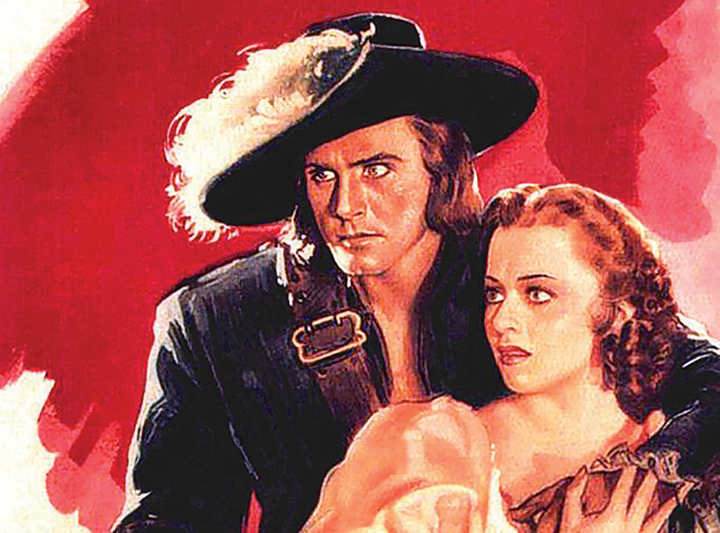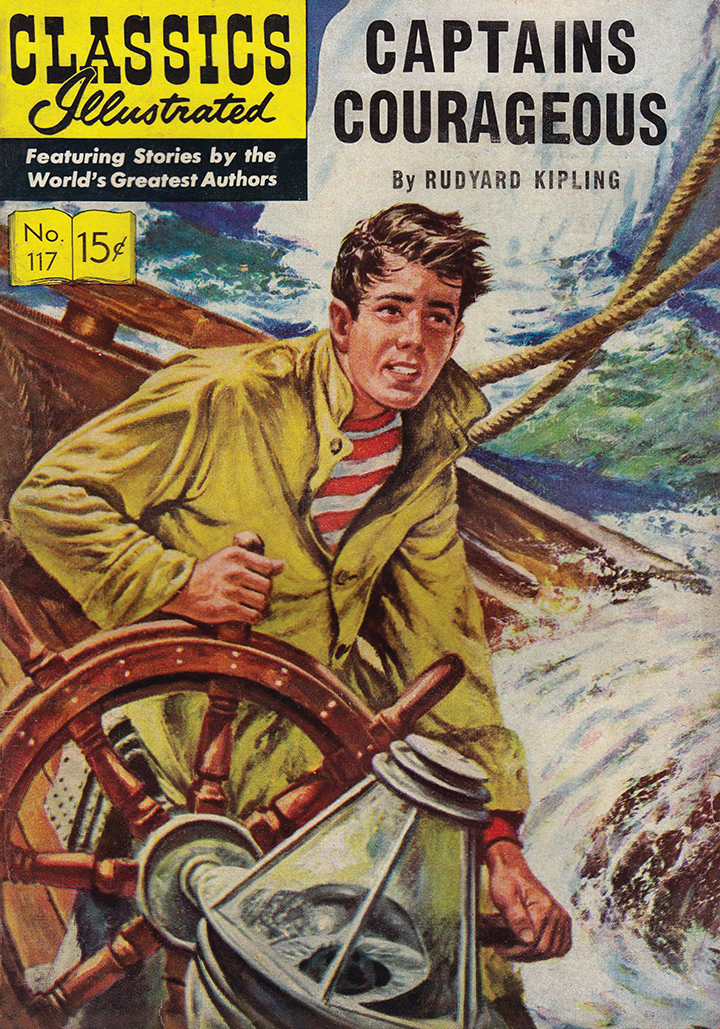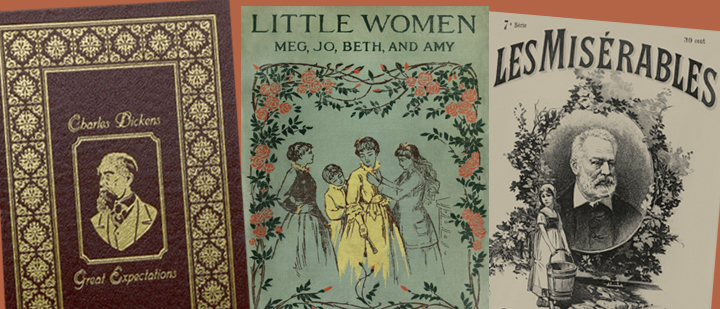
From page to screen
Me, I’m a hillbilly who learned everything I know about classic literature via old movies and Classics Illustrated comic books.
I mean, I did read “Dracula,” “Frankenstein,” “A Christmas Carol,” “Huckleberry Finn,” “Puddn’head Wilson,” “Limehouse Nights,” “More Limehouse Nights,” “The Grapes of Wrath” and “1984,” and my favorite book is “The Complete Sherlock Holmes.” I’ve also (unironically) read the Hardy Boys, the Boxcar Children and the Little Big Book adaptation of “Frankenstein Junior.”
But since childhood, I’ve always felt comforted by the fact that when you saw a movie like “Captains Courageous” in the TV section of The Philadelphia Bulletin, you could watch it and dig John Carradine as a grumpy fisherman, and then you could read the original book (just a library visit away) or, as was more likely in my case, the Classic Illustrated comic book.
Anyway, I watched a bunch of movies based on classic literature …
‘Little Women’ (2019)
In Boston during the Civil War, the March sisters live modestly at the urging of their self-sacrificing mother, Marmee (Laura Dern), as they follow creative and romantic pursuits. Jo (Saoirse Ronan) is a writer. Meg (Emma Watson) has acting talent. Amy (Florence Pugh) wants to paint. Beth (Eliza Scanlen) is happiest when playing piano.
The girls’ crotchety Aunt March (Meryl Streep) is a wealthy spinster who believes any woman who doesn’t “marry rich” is throwing her life away. Jo relocates to New York City, where she meets a dashing young immigrant (Rafael Silva) who critiques her writing. Megan marries a “penniless tutor” — at least, in Aunt March’s view.
The message of Greta Gerwig’s adaptation of Louisa May Alcott’s 1868 novel is an age-old axiom always worth repeating: It is better to give than to receive.
‘Great Expectations’ (2012)
Under threat of his life, a young apprentice blacksmith named Pip (Toby Irvine) provides a savory pork pie, brandy and a file to escaped prisoner Magwitch (Ralph Fiennes). When Magwitch is caught and carried off by gendarmes, neither he nor Pip betray each others’ confidences.
Wealthy shut-in Mrs. Havisham (Helena Bonham Carter) hires Pip to visit her moldering mansion so that she can watch him play. The ballroom table is overrun with mice, and Mrs. Havisham resembles a corpse wrapped in gauze.
Pip becomes infatuated with Estella (Helena Barlow), Mrs. Havisham’s young charge who calls Pip “nothing but a stupid, clumsy laboring boy.” Pip later concludes: “I don’t want to be a blacksmith. I want to be a gentleman.”
Mike Newell’s adaptation is an exploration of class divisions based on the 1861 novel by Charles Dickens.
‘The Three Musketeers’ (2010)
Does the cinema have a better snake-in-the-grass than Christoph Waltz? Does classic literature have a better one than Cardinal Richelieu of Alexandre Dumas’ 1844 novel “The Three Musketeers”? This would be a match made in casting heaven, if only it happened in a better film.
Among the many flaws of director Paul W.S. Anderson’s overblown 3-D steam-punk adaptation is its most fatal: the (mis)casting of d’Artagnan. The only accent that Beverly Hills native Logan Lerman, then 19, could muster was “Keanu Reeves.” (To say something nice, Lerman moves well during the climactic swordfight atop Notre Dame Cathedral.)
Eye candy is supplied by Milla Jovovich, wife of the director and star of his “Resident Evil” movies. Jovovich’s face is still her fortune, and at 36, any little lines only add resonance to her manipulative Milady.
‘Les Miserables’ (1998)
Fourteen years before the Broadway musical adaptation came Billie August’s film version of Victor Hugo’s 1862 novel about institutional incarceration and poverty.
Valjean (Liam Neeson) serves a 19-year sentence for the crime of stealing food when he was hungry. Nine years later, he has reinvented himself as a wealthy factory owner and the magnanimous mayor of a remote French village.
But a troubling reminder of Valjean’s past arrives in the form of Javert (Christopher Rush), his onetime prison guard who is reassigned as police captain of the village.
Uma Thurman gives an affecting performance as Fantine, a destitute woman who turns to prostitution in the desperate hope of regaining custody of her daughter, Cosette (played by Mimi Newman and Claire Danes at different ages), from a family who keeps the child as a slave.
‘Captains Courageous’ (1937)
It’s a parental fantasy: What do you do with a spoiled brat? Stick him on a fishing schooner for three months.
In Victor Fleming’s adaptation of Rudyard Kipling’s 1897 novel, rich boy Harvey (Freddie Bartholomew) is used to getting his way at his pricey boarding school.
When the boy falls off of a steamship, he is rescued by Portugese fisherman Manuel (Spencer Tracy), who happens to be rowing by. Harvey boards the schooner, where his threats go unheeded by the old salts aboard, especially tough-but-fair Captain Troop (Lionel Barrymore).
Though rescued, Harvey is stuck on the boat for the duration of its two-month fishing expedition. Initially judged to be a “Jonah” — that is, a land-lubber who will only hamper the expedition — Harvey eventually becomes one of the gang, thanks to subtle guidance from Manuel.
‘Captain Blood’ (1935)
In 1685 England, physician Peter Blood (Errol Flynn) tries his best to side-step the resistance against tyrannical King James, but is convicted of treason after treating a wounded rebel. Sentenced to be sold as a slave at Port Royal, Blood is bid on by Arabella (Olivia de Havilland), beautiful niece of imperious Col. Bishop (Lionel Atwill).
When Spanish pirates attack Port Royal, Blood and his fellow slaves overtake their ship and embark on their own storied career as pirates. Years later, after James is ousted from the throne, his successor King William pardons the rebels and appoints Blood as bishop of … Port Royal.
Michael Curtiz’s rousing adaptation of Rafael Sabitini’s 1922 novel was Flynn’s first starring role, launching his career as the undisputed king of the “swashbuckler” genre.
VIDEOS
